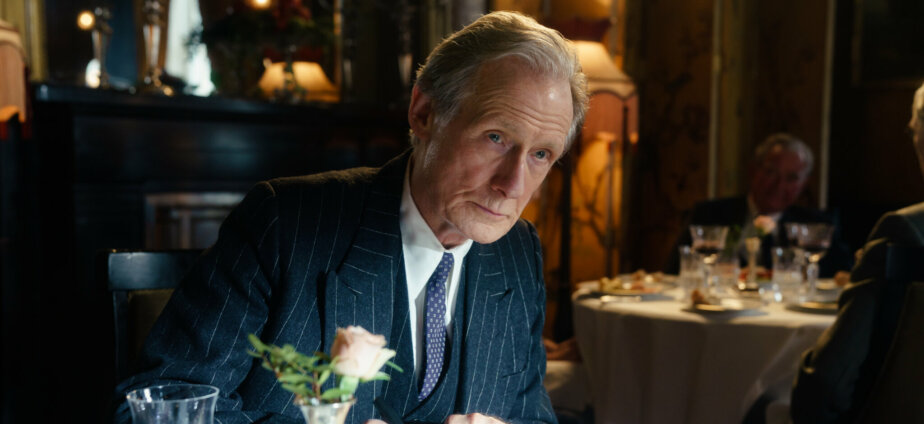Living is about death.
It’s a Bill Nighy feature. In Living, Bill Nighy (Mr Williams) is the archetypal uptight 1950s civil servant. The man in the bowler hat. Nighy, and his ensemble cast, work in a sprawling and bureaucratic council office. But he could just as easily be a clerk in a City bank. Not quite connected enough to be chummy with the upper echelon, but not lowly enough to be cleaning staff.
He’s solidly, boringly middle class.
Even his family life is sooo dull it makes you want to weep. He lives with his son and daughter-in-law in a semi-detached in the suburbs. They’re both self-involved and unaware of Williams as a human being: he’s missing work, sitting on park benches ruminating, keeping company with a young female and generally be un-Williams-like.
The casting is brilliant—Amie Lou Wood (Miss Harris) is the upbeat next-gen female whose zest for life gives Williams the push he needs to engage before it’s all over. Alex Sharp (Mr Wakeling) is the newcomer alert to all the nuances of the stifling office but unaware how to negotiate the madness that is council bureaucracy. The other clerks in the overstuffed office are equally bound by office convention no matter what they say – cf train scene near the end.
Living is an adaption of Akira Kurosawa’s Ikiru by my fave author Kazuo Ishiguro (Remains of the Day). And it has all the hallmarks of what I love about Japanese literature and films – it’s simple, contemplative, and layered. For while it can slip into sentimentality – Nye singing “The Rowan Tree”, though the rowan tree’s symbolism as a tree of journey makes the ballad a reasonable choice (at least it wasn’t “Danny Boy”) – there are great moments. When William’s son talks with Miss Harris, the film throws into relief family relationships and our always assumptions that someone will always be there.
Bill Nighy is superb as the dying Williams: he’s successful, financially secure and even has a family (aka not ‘alone’). But so what? Nighy’s performance is pitch perfect – his face and mannerisms tell all. A lip tremble is all that’s needed sometimes.
Living lacks excitement, a surprise ending or an overly complicated engagement with life’s big questions. At least on the surface. It’s a thinking movie. See it twice.
In theatres now
PG
1 hour 42 minutes









